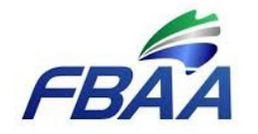Insolvency is a challenging reality for many businesses, particularly in times of economic uncertainty. For business owners, understanding the signs of insolvency and knowing how to respond can be crucial to survival. This blog provides essential insolvency advice, including legal considerations and practical steps, to help you navigate these difficult waters.
What is Insolvency?
Insolvency occurs when a business can no longer meet its debt obligations as they fall due. This can be due to various factors such as declining revenue, increasing costs, or poor cash flow management. Recognising the signs early is crucial, as the sooner you seek business insolvency advice, the more options you have to protect your business.
Recognising the Signs of Insolvency
Being aware of the warning signs of insolvency can help you take proactive steps before the situation worsens. Common signs include:
- Consistent Cash Flow Issues: Struggling to pay bills on time or having to extend credit terms.
- Mounting Debt: An increasing reliance on short-term loans or lines of credit to stay afloat.
- Delayed Payments: Customers taking longer to pay invoices, impacting your ability to meet obligations.
- Insolvency Notices: Receiving formal notices from creditors or the Australian Taxation Office (ATO) regarding unpaid debts.
If your business is facing any of these challenges, it’s essential to seek professional insolvency advice promptly.
The Importance of Seeking Insolvency Advice
When faced with potential insolvency, it’s crucial to understand your legal obligations as a business owner. Insolvency legal advice can help you navigate the complexities of the law, avoid personal liability, and explore all possible avenues for recovery. This is especially important for small businesses, where personal assets are often tied to the business, making the stakes even higher.
Insolvency Legal Advice: Protecting Your Business
Engaging with a qualified insolvency professional can provide you with the legal advice you need to make informed decisions. Here’s how insolvency legal advice can protect your business:
- Understanding Your Options: Whether it’s restructuring, voluntary administration, or liquidation, knowing your options can help you choose the best path forward.
- Minimising Liability: Legal advice can help you avoid actions that could lead to personal liability, such as trading while insolvent.
- Negotiating with Creditors: Expert advice can help you negotiate manageable payment plans or settlements for your business.
Insolvency Advice for Small Businesses
Small businesses often face unique challenges when dealing with insolvency. Limited resources and tighter margins mean that any financial difficulty can quickly escalate. Tailored insolvency advice for small businesses can help you address these challenges effectively. Here’s how:
- Cash Flow Management: Understanding how to manage and optimise cash flow to prevent insolvency.
- Debt Restructuring: Working with creditors to restructure existing debts into more manageable payments.
- Government Support: Exploring available government programs or grants that can provide temporary relief such as Small Business Restructuring or Simplified Liquidation.
Small Business Restructuring involves making significant changes to your business operations to effectively manage and repay outstanding debts to creditors. This process may include restructuring debt, cutting waste and costs, selling off assets, and modifying the organisation’s structure. On the other hand, simplified liquidation is a streamlined process designed to assist struggling businesses in resolving financial difficulties, particularly in the aftermath of the COVID-19 pandemic. This approach reduces both the cost and time required to complete a company’s liquidation, offering quicker relief to business owners and creditors compared to traditional liquidation methods.
When to Consider Insolvency Notices
Insolvency notices are formal warnings from creditors that your business is in arrears. These notices should not be ignored, as they can lead to legal action if not addressed promptly. Seeking business insolvency advice upon receiving an insolvency notice can help you respond appropriately and potentially avoid court proceedings.
Taking Action: Immediate Steps with APICKLE’s Involvement
If you’re facing potential insolvency or creditor pressures are pushing your business toward administration, immediate engagement with apickle is crucial. Here’s how we can help:
Step 1: Commercial Debt Restructuring:
Our initial approach involves facilitating a Commercial Debt Restructuring Home Loan.
Known as Equity Finance, this method identifies your property’s equity to consolidate various business debts into a single, manageable loan.
This strategic consolidation simplifies your financial management by reducing multiple creditor interactions into one streamlined repayment plan.
Despite past defaults or credit issues, our focus is on stabilisation, not penalisation.
Step 2: Early Intervention and Strategic Review:
As soon as you engage with us, apickle will conduct a comprehensive review of your company’s finances—assessing cash flow, existing debts, and assets.
This detailed analysis is essential to effectively navigate either the Small Business Restructuring Process or Voluntary Administration.
Step 3: Developing a Robust Financial Plan:
Working alongside apickle’s preferred insolvency practitioners, we inform them of the proposed Equity Finance plan.
By settling specific debts, particularly those involving secured creditors, we strengthen the Deed of Company Arrangement (DOCA).
This approach aims to secure a favourable vote from most unsecured creditors, thus preventing liquidation and returning control of the company to you with a healthier balance sheet.
Step 4: Communication and Execution of the Plan:
This step involves negotiating with stakeholders to repay creditors fully or partially, which often yields better results than liquidation would.
Once the restructuring begins, your company benefits from a 20-business-day grace period to propose a repayment plan to creditors, during which most security enforcement actions are paused.
After this, creditors have 15 business days to vote on the plan, requiring over 50% in value of unrelated creditor support to pass.
Final Steps: Continuing Business Operations Upon plan approval, the company will continue to trade in the ordinary course of business while the Plan is administered by the Restructuring Practitioner.
The Plan must operate for no more than 3 years. This period allows for the implementation of the restructuring plan, ensuring long-term viability and stability.
apickle’s Role Throughout this process, apickle acts as a critical ally.
We not only facilitate financial recapitalisation but also focus on protecting key assets and providing a viable exit strategy for business owners.
Our expertise in debt negotiation plays a pivotal role in ensuring favourable loan-to-value ratios and securing the financial future of your business.
Need Insolvency Help? That’s Why We’re Here
When faced with stressful financial challenges, having a reliable partner is essential. At apickle, we’re here to help you navigate the complexities of insolvency with expert business debt solutions, strategic debt negotiation, and effective debt restructuring. Don’t wait for the situation to worsen—reach out to our team today. We’re ready to provide the personalised support you need to protect your business and guide it back to stability. Contact apickle now to take the first step toward a stronger financial future.



